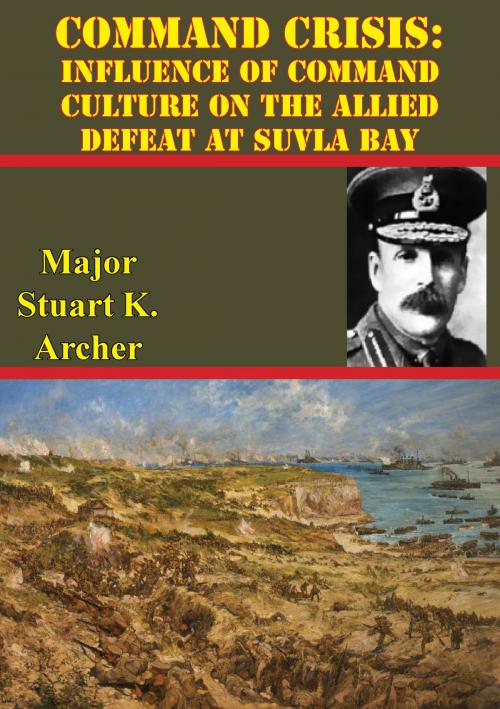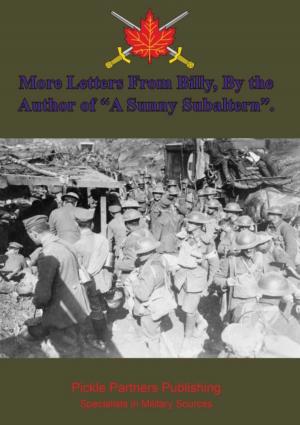Command Crisis: Influence Of Command Culture On The Allied Defeat At Suvla Bay
Nonfiction, History, Military, World War I, Germany, British| Author: | Major Stuart J. Archer | ISBN: | 9781786250209 |
| Publisher: | Lucknow Books | Publication: | November 6, 2015 |
| Imprint: | Lucknow Books | Language: | English |
| Author: | Major Stuart J. Archer |
| ISBN: | 9781786250209 |
| Publisher: | Lucknow Books |
| Publication: | November 6, 2015 |
| Imprint: | Lucknow Books |
| Language: | English |
The IX Corps of the British Mediterranean Expeditionary Force (MEF) achieved a complete tactical surprise of the Turkish defenders with its landing on 6 August 1915. Yet, despite a huge superiority in resources and a ten-to-one advantage in men, the IX Corps failed to obtain its planned objectives. This study examines the extent that the outcome of the British failure was influenced by the prevalent British Army command culture.
The British Army command culture of 1916 was directly linked to its past as a colonial police force. Although well suited for that role, it was unable to effectively deal with the changes in warfare and the rapidly expanding sizes of armies in 1916. The British command culture of the time consisted a personalized system that exercised a reliance on a system of seniority, a hands-off method of command at the senior and operational levels, and a restrictive method of control at the tactical level.
The IX Corps of the British Mediterranean Expeditionary Force (MEF) achieved a complete tactical surprise of the Turkish defenders with its landing on 6 August 1915. Yet, despite a huge superiority in resources and a ten-to-one advantage in men, the IX Corps failed to obtain its planned objectives. This study examines the extent that the outcome of the British failure was influenced by the prevalent British Army command culture.
The British Army command culture of 1916 was directly linked to its past as a colonial police force. Although well suited for that role, it was unable to effectively deal with the changes in warfare and the rapidly expanding sizes of armies in 1916. The British command culture of the time consisted a personalized system that exercised a reliance on a system of seniority, a hands-off method of command at the senior and operational levels, and a restrictive method of control at the tactical level.



![Cover of the book The AAF In Northwest Africa [Illustrated Edition] by Major Stuart J. Archer](https://www.kuoky.com/images/2014/august/300x300/9781782894667-I1uq_300x.jpg)
![Cover of the book WE SURVIVED - The Stories Of Fourteen Of The Hidden And The Hunted Of Nazi Germany [Illustrated Edition] by Major Stuart J. Archer](https://www.kuoky.com/images/2015/november/300x300/9781786255761-9stN_300x.jpg)








![Cover of the book A War Nurse’s Diary; Sketches From A Belgian Field Hospital [Illustrated Edition] by Major Stuart J. Archer](https://www.kuoky.com/images/2014/june/300x300/9781782891635-QpIG_300x.jpg)

